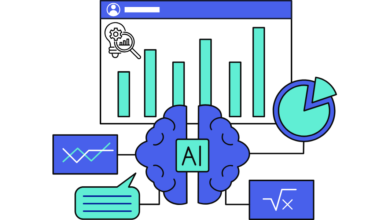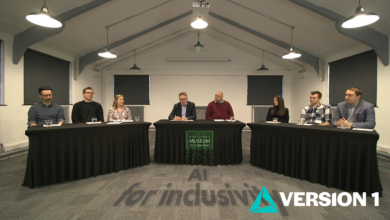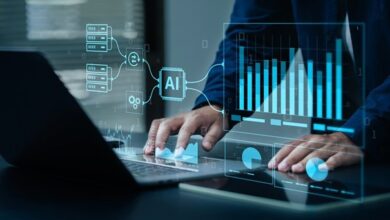If there was a phrase that truly holds in any artificial intelligence conversation, it is that the future is bright. It is almost impossible not to see the impact of AI on our society as it continues to develop rapidly.
With more ground still to cover despite the widespread adoption and many facets, there are certainly no boundaries to how technology will reshape the narrative of our society. But the question is, how unlimited can artificial intelligence become when done right?
Artificial Intelligence and its Impact on Society
Over the past few years, artificial intelligence has lived up to the hype as it continues to gather momentum to revolutionize many different industries and aspects of our lives. AI’s significant role in our day-to-day life can be felt in education, healthcare, business, sports, hospitality, transportation, and other sectors.
AI can transform our lives for the better in innumerable ways. Its potential applications are limitless and range from improving our health and quality of life to increasing our economic productivity.
Recently, the Mayflower, an autonomous ship, used AI to cross the Atlantic without any human crew on board. A self-driven ship that could go 18.5 kilometers an hour, powered by electric motors that run on solar energy and had diesel as a backup if needed.
The feat was achieved by collaborating with IBM and a marine research non-profit called ProMare. The Mayflower had multiple cameras and sensors to feed the AI information about its surroundings, enabling it to make the right navigational decisions like re-routing around spots with lousy weather. It also had onboard radar, GPS, and altitude and water-depth detectors.
How AI is Improving Our Lives and Changing the World
In general, AI can be defined as a computer system that can perform tasks typically requiring human intelligence, such as visual perception, the ability to make decisions, and natural language processing.
Ultimately, the impact of AI on our society will depend on how we choose to use this technology. If we are thoughtful and responsible in our application of AI, it has the potential to improve our world in ways we can’t even imagine.
A few days ago, at the Amazon conference in Las Vegas, it was announced that, in their bid to build empathy into AI, Amazon’s personal digital assistant Alexa is on track to introduce a new ability where it can replicate the voices of deceased family members. All that is required for this mimicry to be completed is just less than a minute of recording of the person’s voice.
“We are unquestionably living in the golden era of AI, where our dreams and science fiction are becoming a reality,” says Rohit Prasad, Senior VP, and Head of Scientist, AlexaAI.
In the healthcare industry, AI-powered chatbots can be used to provide patients with 24/7 access to medical advice and support. As technology advances, AI could also be used to develop personalized medicine and improve disease detection and prevention.
In the financial sector, AI is also pivotal in developing “robo-advisors,” which can provide investors with automated investment advice. Major retailers such as Amazon deploy artificial intelligence to power their automated customer service agents and improve the efficiency of their warehouses.
Every industry has had its share of the uniqueness of artificial intelligence technology and how it is innovatively shaping our society and everyday activities. Its potential applications are virtually limitless and range from improving our quality of life to increasing our economic productivity.
Problems and Concerns Lingering Around AI
As AI becomes more widespread and sophisticated, there is also the fear of being used for harmful purposes. The possibility that they could eventually surpass our intelligence, leading to unforeseen and potentially disastrous consequences, never goes away.
As AI gets smarter and more powerful, there are concerns that AI could potentially be used for evil purposes, like creating autonomous weapons or hacking into critical infrastructure.
If AI is not properly regulated, it could be used for nefarious purposes such as creating “deepfakes” where fake videos or images that are indistinguishable from the real thing are being used to manipulate public opinion, which could have devastating consequences.
Another major concern is transparency, and there has been a lot of debate surrounding the issue of artificial intelligence. At the same time, some believe that AI should be completely transparent to ensure accountability and avoid any potential bias. Others argue that too much transparency could lead to a loss of competitive advantage or even security risks.
The fear of unknown risks largely drives the concern over AI transparency. As AI gets more sophisticated, it is becoming increasingly difficult for humans to understand how these systems make decisions. This lack of understanding could lead to unforeseen consequences, such as biased decision-making or unexpected system failures.
There are several ways to increase transparency in artificial intelligence, such as making the training data and algorithms available to the public, providing clear explanations of how decisions are made, or increasing regulatory oversight. However, it is important to strike the right balance between transparency and privacy, security, and commercial interests.
Finally, there is the concern that AI will surpass human intelligence and become uncontrollable. As AI gets smarter, it will be better at designing and improving itself. At some point, AI could become so intelligent that it would be able to overpower humans. This would lead to disastrous consequences, as AI would be in control of the world and humans would be at its mercy.
Drawing the Curtains
Overall, AI is profoundly impacting our society and changing how we live, work, and interact with each other. As AI continues to develop, we can expect even more changes in the years to come.
As it continues to develop, we must be aware of its potential benefits and dangers. Only then can we make sure that AI is used in ways that benefit humanity. When it comes to AI, there are no boundaries to how far it can get. We can only imagine how it will impact our world.



